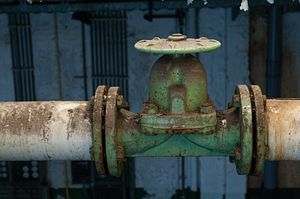On July 6, a Russian court ordered the Caspian Pipeline Consortium (CPC) to suspend operations for 30 days. CPC carries oil from Kazakhstan into Russia and to the edge of the Black Sea. Although it handles just over 1 percent of global oil, CPC is critical for Kazakhstan; around 80 percent of Kazakhstan’s oil exports move through the Novorossiysk oil terminal.
The timing of the decision has naturally raised some eyebrows, coming just two days after Kazakh President Kassym-Jomart Tokayev told European Council President Charles Michel via phone that Nur-Sultan was “ready to use its hydrocarbon potential for the sake of stabilization of the global and European markets.”
Early last month, the European Union imposed a partial ban on Russian oil imports as part of a sixth package of sanctions in response to the Russian invasion of Ukraine. But the ban on seaborne Russian crude oil does not take effect until December. As a Bloomberg article pointed out in late June Russian exports of oil to Europe had already begun to creep back up, largely due to shipments to Russian-owned refineries in Italy and increased purchases by Turkey. In any case, Europe’s aim is to decrease its imports of Russian oil and Kazakhstan stands as an option — but Kazakh exports to Europe depend on Russian pipelines.
The chain of events doesn’t necessarily suggest Kazakhstan-Russian tensions, though some with surely draw that conclusion. Rather, the dirty work of transporting oil and the constraints Kazakhstan faces due to a lack of diversification of export routes are at the heart of the issue. On the latter, Kazakhstan faces a geographic conundrum: With Russia or China the main avenues available for oil exports, diversification is not so simple.
A CPC press release about the stoppage explains that in late April, Rostransnadzor, the Russian federal agency which supervises transport, including pipelines, ordered an audit of the company that operates the Russian portion of the pipeline, CPC-R. After the audit concluded in May, it “revealed a number of documentary violations under the Oil Spill Response (OSR) Plan.”
On June 6, CPC was issued a citation, which mandated that the violations be addressed by the end of November 2022. But Rostransnadzor appealed to the court on July 5 for an immediate 90-day halt to operations at Novorossiysk. The court ruled for a 30-day suspension, which CPC said it would appeal.
While some will make special note of the political timing, as discussed above, this is far from the first problem at Novorossiysk. As Euractiv noted:
Closures of the Novorossiysk terminal are frequent, and it was previously closed in June over the reported discovery of 50 World War II-era explosives in the port’s waters. It was also shut down in March due to damage sustained during a storm. During the three-week closure, the world market lost some one million barrels of oil.
And indeed, the audit identifying problems with the oil spill response plan is not necessarily a shock. In August 2021, there was a spill at Novorossiysk during the loading of a Greek tanker. Although CPC said the spill was quickly contained, analysis of satellite images by the Space Research Institute at the Russian Academy of Sciences suggested the spill was larger than the company had declared. Evgeny Lupyan, the institute’s deputy director, reportedly said, “Estimates show that it’s about 40, 60, 80 tons of oil. It’s by all accounts much more than the 12 tons declared by the company. A spill of this magnitude is certainly unprecedented for the Black Sea.”
On June 29, 2022 CPC paid Russia 5.282 billion rubles ($83.6 million) compensation for damages from the August 2021 spill.































